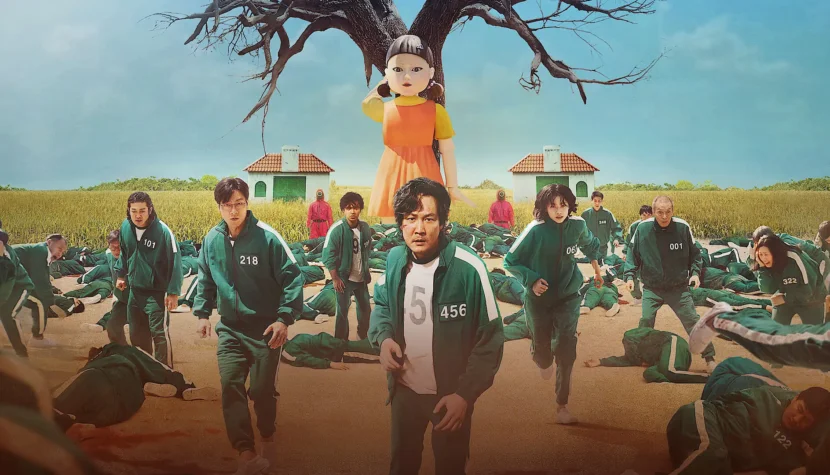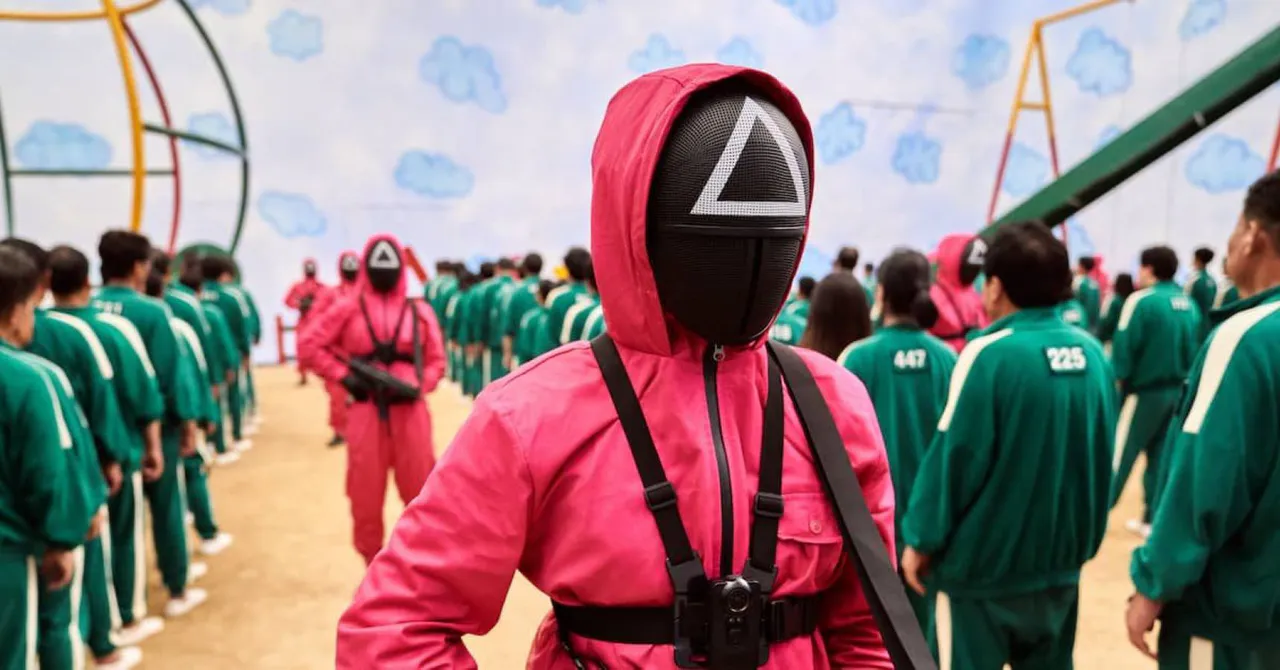SQUID GAME. What’s all the fuss about?

The unassuming Korean Netflix series “Squid Game” broke all viewership records after its release. What drew audiences to it? The mix of a whimsical visual style with brutal carnage? Or perhaps its unsettlingly exaggerated portrayal of deepening social divides?
I suspect the plot of Hwang Dong-hyuk’s series is well known to most, even to those who haven’t watched it. As an internet user, it’s hard to avoid encountering the phenomenon of this production. The titular “Squid Game” is a contest where you either win vast riches or die. The problem is that there are 456 participants, but only one winner. Mysterious masked individuals take hundreds of debt-ridden, impoverished people to a deserted island. They are given the chance to reverse their fortunes by participating in disturbing challenges that, at first glance, seem innocent and childlike. While the game turns into a literal death match, most participants choose to continue playing—because it’s their only chance. Meanwhile, the camera focuses closely on a few main characters. Gi-hun Seong wants to help his ailing mother and prove to his daughter that he’s not a failure. Sae-byeok Kang wants to secure a better life for her younger brother by taking him out of an orphanage. Sang-woo Jo simply wants to salvage his reputation. Each of them is in such a hopeless situation that they willingly become part of this large-scale massacre.

“Squid Game” dared to show what other productions wouldn’t, and that made it so popular. It’s hard to stop watching after the first episode. The initial massacre seems impossible to top, but the show continues to push the boundaries of violence and horror. Moreover, it offers a fierce life-or-death competition that compels viewers to keep watching. All of this is presented in a grotesque, carefree style of childhood games, deeply rooted in South Korean culture. Yet, “Squid Game” addresses a universal problem that affects every society, regardless of the continent.
While “Squid Game” is intense and visually striking, it doesn’t say anything new. It’s the classic tale of “man is a wolf to man,” where, when a bankrupt sees millions of dollars at stake, all animal instincts come to the surface. Where the creators had the potential to offer the most thought-provoking commentary, they said almost nothing. There had to be something behind those masks, some guiding principle behind it all. “Squid Game” does touch on social issues in Korea—like the widening wealth gap, debt, and high-interest loans that bankrupt many Koreans. The Leader, the mysterious figure overseeing the game, claims that players are treated equally because they never experienced equality in the outside world. Does “Squid Game” attempt to serve as a socio-political analogy about predatory capitalism? Unfortunately, we learned very little about the production machinery behind the game. The conversation in the final episode had the potential to offer viewers deeper insights and enrich “Squid Game” with meaningful commentary, but it failed to do so. In the end, the creators opted for the easy way out, reducing the game to a frivolous pastime for immoral elites.
As a result, the Netflix production leaves us with a bleak, but somewhat worn-out and banal moral: that life has winners and losers, the privileged and the disadvantaged. The only criterion that defines a person is the balance in their bank account. Either you wear the green tracksuit, or you don the golden animal mask—although, in this case, the animals are on the other side. Even the last noble character couldn’t stand up to the system. In life, you can lose just as easily as in a game of “Red Light, Green Light.” Because life, like the games the characters play, isn’t fair. Yet people will still play, clinging to the faint hope of a win that might put their lives back on track.

“Squid Game” owes much of its global success to its strong social media promotion. I myself might not have discovered the series if it weren’t for the constant clips on TikTok showing the trend of carving shapes out of cookies. The show also sparked numerous conspiracy theories that spread by word of mouth. “Squid Game” is a well-made, dynamic, intriguing, and engrossing production. But in the end, did it offer us anything more than a light-hearted fetishization of violence?

